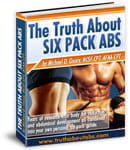by Mike Geary - Certified Nutrition Specialist, Certified Personal Trainer
Best-Selling Author: The Fat-Burning Kitchen & The Top 101 Foods that FIGHT Aging
 With
so much talk, confusion, and controversy in recent years about "carbs",
I wanted to give you my take on good carbs vs bad carbs, low carb vs
high-carb, and all the other "carb confusion" out there. I'll also show
you some of my favorite healthy carbohydrate choices, and exactly why
they are better than other choices.
With
so much talk, confusion, and controversy in recent years about "carbs",
I wanted to give you my take on good carbs vs bad carbs, low carb vs
high-carb, and all the other "carb confusion" out there. I'll also show
you some of my favorite healthy carbohydrate choices, and exactly why
they are better than other choices.
First of all, although I'm not a "low carb" extremist, I do believe that one of the main reasons so many people struggle to ever lose any body fat is that (regardless of complex vs simple carbs) they are over-consuming processed grain-based or sugary carbohydrates such as:
Note that I didn't include potatoes in the list of processed carbohydrates. Despite the trash talking they get from many fitness professionals, I think whole potatoes (not fries or chips!) are a nutrient-dense healthy food in general, although the skins of potatoes do contain mild amounts of toxins.
Even carbohydrate sources that most people think are "healthy" usually are just excess calories that don't really deliver a whole lot of nutrient density... and many types of breads and cereals pretend to be "whole grain" with clever marketing while in reality the first ingredient in them is refined flour, which is just going to shoot your blood sugar through the roof.
However, even "whole grain" products have been shown to have just as much of a massive blood sugar impact as refined grains in many cases, particularly when it comes to wheat products. And unfortunately, whole grains are also bad because it's generally the bran portion of grains that contains the majority of gut-damaging antinutrients that can inflame your digestive system or prevent absorption of certain minerals by your body.
What does "low carb" vs "moderate carb" vs "high carb" even mean?
According to expert Nutrition author Chris Kresser, below are the differences between low, moderate, or high carb ratios compared to your total calories. Keep in mind that the average person eating a modern western diet consumes a massive 50-60% of their calories from carbs.
Note: If you consume 2000 calories per day, then that means 200 calories, or approx 50 grams of carbs for the day would be 10% of your total calories. For me, because of my height and high activity levels (I'm a big skier, mountain biker, hiker, swimmer, etc), my daily maintenance is more around 3000 calories, so that would mean 75 grams of carbs would represent 10% of my calories (75 x 4 = 300 calories from carbs). On most days, I'd estimate that I get between 80-100 grams of carbs total, which is equivalent to 1 piece of fruit, 1 sweet potato, some various veggies throughout the day, along with a little bit of honey in my tea, and a little bit of coconut sugar in my coffee.
My take on it is that the majority of people struggling to lose body fat would do much better following these types of carb guidelines:
1. Reduce or eliminate your grain-based carb products in the diet (cereal, pasta, rice, crackers, etc) and focus more of your diet on healthy grass-fed and/or free-range meats and eggs, grass-fed raw dairy or fermented dairy (kefir and yogurt), nuts, and TONS of vegetables and fruits (for most people, keeping fruit to 1-2 pieces per day is best).
I understand that it's very hard for most people to give up entirely their breads, cereals, and pastas. But don't worry, just save the grain-based carbs for no more than a 1-day per week "cheat day", and most people can still do just fine if you're not gluten intolerant or Celiac.
2. Instead of the grains for most of your carbs, try getting most of your carbs from vegetables, sweet potatoes, and a variety of whole fruits and berries (NOT fruit juices, which remove the beneficial fiber as well as other essential parts of the fruit).
3. If you're going to eat any grains at all, focus on sprouted grains if you can, or sourdough on the occasions that you absolutely need to have bread. Since sourdough bread has been fermented, some of the antinutrients have been broken down, and even the gluten is thought to be at least slightly more digestible in a sourdough bread.
Note on wheat germ -- although wheat germ is a nutrient dense food (compared to the nutrient-poor starch portion of wheat), beware of the gluten in wheat if you have any intolerance. Many people have wheat/gluten intolerances and don't even realize it. It could be worth it to get tested to see how your body is handling wheat.
If you are choosing sprouted grain breads, make sure that it's 100% sprouted grain, and not regular flour as the main ingredient followed by a portion of sprouted grains. Sprouted grains are healthier than "whole grains" because the sprouting process deactivates many of the antinutrients that can cause digestive problems and prevent certain minerals from being absorbed.
4. To replace the void if you're used to consuming lots of bread, pasta, cereals, and other carb sources... try filling that void with more healthy fats such as nuts, seeds, avocados, coconut oil, olive oil, olives, grass-fed butter and cream, aged cheeses, nut butters, as well as healthy proteins such as grass-fed dairy and meats, whole free-range organic eggs, etc.
Healthy fats and proteins go a long way to satisfying your appetite, controlling proper hormone and blood sugar levels, and helping you to make real progress on fat loss. Consuming more healthy fats instead of carbs also helps to transition your metabolism into a "fat adapted metabolism" instead of being a "carb burner" like most people. Having a "fat adapted metabolism" gives you more stable energy levels, stable blood sugar, balanced hormones, and more. On the other hand, being a carb-burner gives you more energy spikes and dips, blood sugar swings, and cravings.
With all of that said, even when I'm eating a low-moderate carbohydrate diet, here's one of my favorite carb sources that is high in fiber as well as tons of vitamins, minerals, and antioxidants:
Sweet potatoes or yams
I always choose the orange varieties instead of the white varieties of sweet potatoes for more carotenes. One of the problems with sweet potatoes is the time it takes to bake a sweet potato for 1 to 1.5 hrs.
I cook my sweet potatoes in a different way that only takes 5 minutes and they come out delicious... and no, I would NEVER use a microwave.
The easiest and quickest way I've found to cook up a sweet potato is to slice it up into thin slivers and put it into a pan that you can cover with a lid. I add a touch of butter, virgin coconut oil (beneficial medium chain triglycerides), and about 3-4 Tbsp of water and simmer with a covered lid for about 5 minutes.
When the sweet potatoes are soft, then add a little cinnamon and maybe a touch (no more than a teaspoon) of real maple syrup (if you want a little more sweet flavor) and you're all set with a delicious healthy carb side dish to go with any meat dish. Add a side salad and you've got the perfect lean-body meal plan.
If you liked this article, feel free to share it with your friends and family below:
 With
so much talk, confusion, and controversy in recent years about "carbs",
I wanted to give you my take on good carbs vs bad carbs, low carb vs
high-carb, and all the other "carb confusion" out there. I'll also show
you some of my favorite healthy carbohydrate choices, and exactly why
they are better than other choices.
With
so much talk, confusion, and controversy in recent years about "carbs",
I wanted to give you my take on good carbs vs bad carbs, low carb vs
high-carb, and all the other "carb confusion" out there. I'll also show
you some of my favorite healthy carbohydrate choices, and exactly why
they are better than other choices.First of all, although I'm not a "low carb" extremist, I do believe that one of the main reasons so many people struggle to ever lose any body fat is that (regardless of complex vs simple carbs) they are over-consuming processed grain-based or sugary carbohydrates such as:
- cereals
- pasta
- rice
- bagels
- muffins
- breads (even whole grain varieties are not ideal if you're looking to lose body fat & prevent digestive system damage)
- sodas (loaded with sugar and/or high fructose corn syrup)
- juices (way too much fructose and total sugar without any of the fruit fiber)
- candies
- crackers
Note that I didn't include potatoes in the list of processed carbohydrates. Despite the trash talking they get from many fitness professionals, I think whole potatoes (not fries or chips!) are a nutrient-dense healthy food in general, although the skins of potatoes do contain mild amounts of toxins.
Even carbohydrate sources that most people think are "healthy" usually are just excess calories that don't really deliver a whole lot of nutrient density... and many types of breads and cereals pretend to be "whole grain" with clever marketing while in reality the first ingredient in them is refined flour, which is just going to shoot your blood sugar through the roof.
However, even "whole grain" products have been shown to have just as much of a massive blood sugar impact as refined grains in many cases, particularly when it comes to wheat products. And unfortunately, whole grains are also bad because it's generally the bran portion of grains that contains the majority of gut-damaging antinutrients that can inflame your digestive system or prevent absorption of certain minerals by your body.
What does "low carb" vs "moderate carb" vs "high carb" even mean?
According to expert Nutrition author Chris Kresser, below are the differences between low, moderate, or high carb ratios compared to your total calories. Keep in mind that the average person eating a modern western diet consumes a massive 50-60% of their calories from carbs.
- Very Low carb = lower than 10% of total calories (Good for therapeutic uses such as cancer treatment, Diabetes treatment, Alzheimers & other conditions)
- Low carb = 10-15% of total calories (good for weight loss, blood sugar control, digestive improvement, and Diabetes control)
- Moderate carb = 15-30% of total calories (good range for the average person to maintain weight, balance energy, balance hormones, etc)
- High carb = greater than 30% of total calories (Good for people that want to GAIN weight, gain muscle, or are high level athletes)
Note: If you consume 2000 calories per day, then that means 200 calories, or approx 50 grams of carbs for the day would be 10% of your total calories. For me, because of my height and high activity levels (I'm a big skier, mountain biker, hiker, swimmer, etc), my daily maintenance is more around 3000 calories, so that would mean 75 grams of carbs would represent 10% of my calories (75 x 4 = 300 calories from carbs). On most days, I'd estimate that I get between 80-100 grams of carbs total, which is equivalent to 1 piece of fruit, 1 sweet potato, some various veggies throughout the day, along with a little bit of honey in my tea, and a little bit of coconut sugar in my coffee.
My take on it is that the majority of people struggling to lose body fat would do much better following these types of carb guidelines:
1. Reduce or eliminate your grain-based carb products in the diet (cereal, pasta, rice, crackers, etc) and focus more of your diet on healthy grass-fed and/or free-range meats and eggs, grass-fed raw dairy or fermented dairy (kefir and yogurt), nuts, and TONS of vegetables and fruits (for most people, keeping fruit to 1-2 pieces per day is best).
I understand that it's very hard for most people to give up entirely their breads, cereals, and pastas. But don't worry, just save the grain-based carbs for no more than a 1-day per week "cheat day", and most people can still do just fine if you're not gluten intolerant or Celiac.
2. Instead of the grains for most of your carbs, try getting most of your carbs from vegetables, sweet potatoes, and a variety of whole fruits and berries (NOT fruit juices, which remove the beneficial fiber as well as other essential parts of the fruit).
3. If you're going to eat any grains at all, focus on sprouted grains if you can, or sourdough on the occasions that you absolutely need to have bread. Since sourdough bread has been fermented, some of the antinutrients have been broken down, and even the gluten is thought to be at least slightly more digestible in a sourdough bread.
Note on wheat germ -- although wheat germ is a nutrient dense food (compared to the nutrient-poor starch portion of wheat), beware of the gluten in wheat if you have any intolerance. Many people have wheat/gluten intolerances and don't even realize it. It could be worth it to get tested to see how your body is handling wheat.
If you are choosing sprouted grain breads, make sure that it's 100% sprouted grain, and not regular flour as the main ingredient followed by a portion of sprouted grains. Sprouted grains are healthier than "whole grains" because the sprouting process deactivates many of the antinutrients that can cause digestive problems and prevent certain minerals from being absorbed.
4. To replace the void if you're used to consuming lots of bread, pasta, cereals, and other carb sources... try filling that void with more healthy fats such as nuts, seeds, avocados, coconut oil, olive oil, olives, grass-fed butter and cream, aged cheeses, nut butters, as well as healthy proteins such as grass-fed dairy and meats, whole free-range organic eggs, etc.
Healthy fats and proteins go a long way to satisfying your appetite, controlling proper hormone and blood sugar levels, and helping you to make real progress on fat loss. Consuming more healthy fats instead of carbs also helps to transition your metabolism into a "fat adapted metabolism" instead of being a "carb burner" like most people. Having a "fat adapted metabolism" gives you more stable energy levels, stable blood sugar, balanced hormones, and more. On the other hand, being a carb-burner gives you more energy spikes and dips, blood sugar swings, and cravings.
With all of that said, even when I'm eating a low-moderate carbohydrate diet, here's one of my favorite carb sources that is high in fiber as well as tons of vitamins, minerals, and antioxidants:
Sweet potatoes or yams
I always choose the orange varieties instead of the white varieties of sweet potatoes for more carotenes. One of the problems with sweet potatoes is the time it takes to bake a sweet potato for 1 to 1.5 hrs.
I cook my sweet potatoes in a different way that only takes 5 minutes and they come out delicious... and no, I would NEVER use a microwave.
The easiest and quickest way I've found to cook up a sweet potato is to slice it up into thin slivers and put it into a pan that you can cover with a lid. I add a touch of butter, virgin coconut oil (beneficial medium chain triglycerides), and about 3-4 Tbsp of water and simmer with a covered lid for about 5 minutes.
When the sweet potatoes are soft, then add a little cinnamon and maybe a touch (no more than a teaspoon) of real maple syrup (if you want a little more sweet flavor) and you're all set with a delicious healthy carb side dish to go with any meat dish. Add a side salad and you've got the perfect lean-body meal plan.
If you liked this article, feel free to share it with your friends and family below:






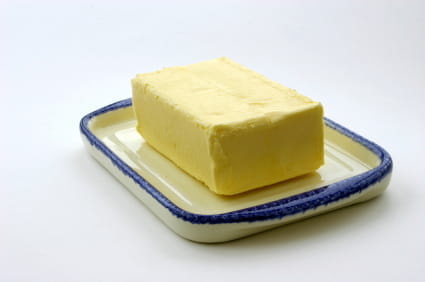
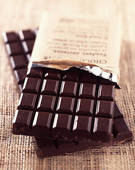
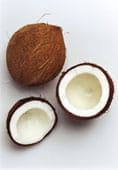
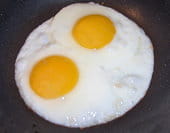

 On
the other hand, grass-fed beef from cattle and buffalo (or bison) that
were raised on the type of natural foods that they were meant to eat in
nature (grass and other forage), have much higher levels of healthy
omega-3 fats and lower levels of inflammatory omega-6 fats (that most
people already eat way too much of) compared to grain fed beef or
bison.
On
the other hand, grass-fed beef from cattle and buffalo (or bison) that
were raised on the type of natural foods that they were meant to eat in
nature (grass and other forage), have much higher levels of healthy
omega-3 fats and lower levels of inflammatory omega-6 fats (that most
people already eat way too much of) compared to grain fed beef or
bison.

